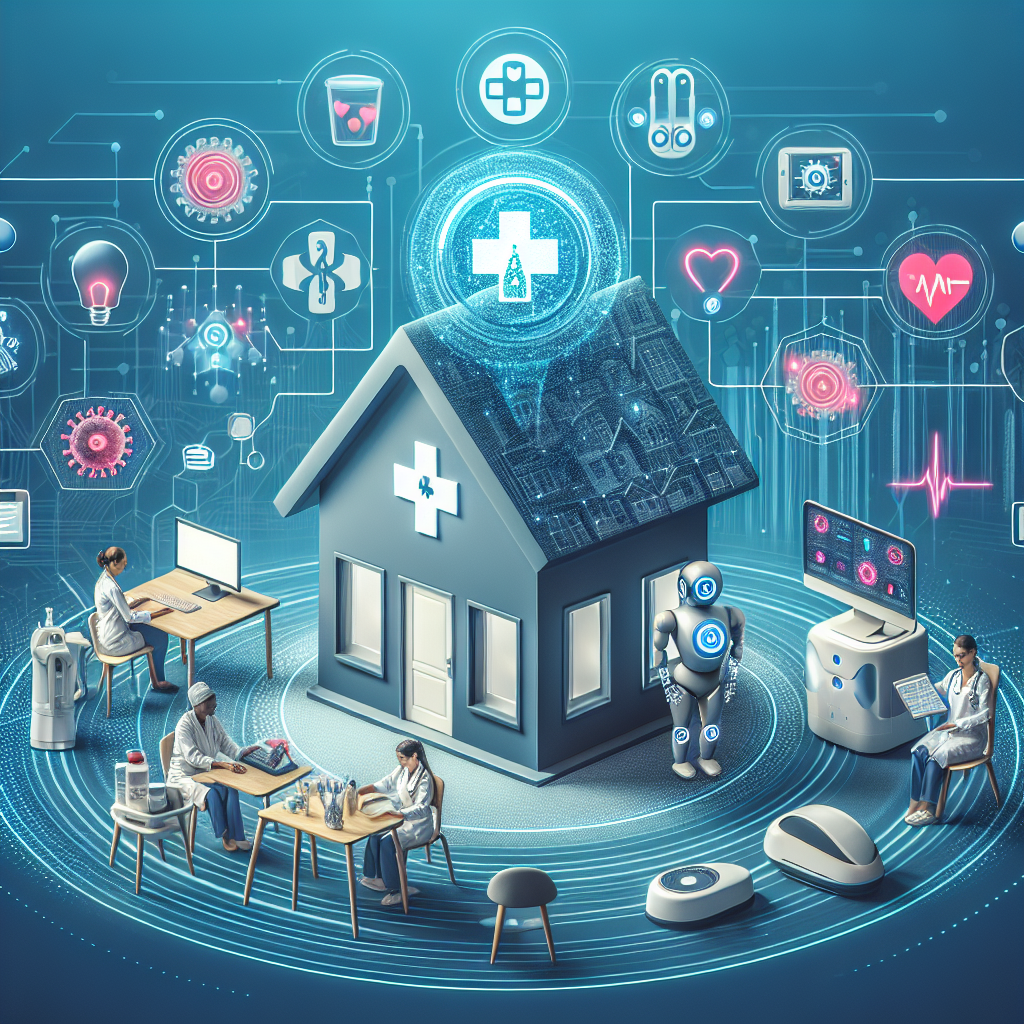The Potential of AI in Home Healthcare
Advancements in artificial intelligence (AI) have had a significant impact on various industries, including healthcare. In recent years, AI has been increasingly used in home healthcare to improve patient outcomes, increase efficiency, and reduce costs. The potential of AI in home healthcare is vast, and it is expected to revolutionize the way healthcare services are delivered to patients in their homes.
AI technology has the ability to analyze large amounts of data quickly and accurately, which can help healthcare providers make more informed decisions and provide more personalized care to patients. By utilizing AI algorithms, healthcare professionals can identify patterns and trends in patient data, predict potential health issues, and recommend appropriate treatments. This can lead to earlier detection of health problems, better management of chronic conditions, and ultimately improved health outcomes for patients.
One of the key areas where AI is making a significant impact in home healthcare is remote monitoring. Remote monitoring devices equipped with AI technology can continuously collect and analyze a patient’s vital signs, activity levels, and other health data in real-time. This data can then be transmitted to healthcare providers for review, allowing them to monitor patients’ health status remotely and intervene if necessary. This can be especially beneficial for patients with chronic conditions who require regular monitoring and may not be able to visit a healthcare facility frequently.
AI-powered virtual assistants are also being used in home healthcare to provide support and guidance to patients. These virtual assistants can answer questions, provide information on medications and treatments, remind patients to take their medications, and even schedule appointments with healthcare providers. By having access to a virtual assistant, patients can receive assistance and guidance anytime, anywhere, without the need to visit a healthcare facility.
Furthermore, AI technology can be used to streamline administrative tasks in home healthcare, such as scheduling appointments, managing medical records, and billing. By automating these processes, healthcare providers can save time and resources, allowing them to focus more on delivering quality care to patients. This can lead to improved efficiency, reduced administrative costs, and better overall patient experience.
In addition, AI-powered predictive analytics can help healthcare providers identify high-risk patients who may require additional support or interventions. By analyzing patient data and identifying patterns that may indicate a higher risk of complications or hospitalization, healthcare providers can proactively intervene and provide targeted care to these patients. This can help prevent unnecessary hospitalizations, reduce healthcare costs, and improve patient outcomes.
Despite the numerous benefits of AI in home healthcare, there are also challenges and concerns that need to be addressed. One of the main challenges is ensuring the security and privacy of patient data. As AI technology relies on large amounts of data to make accurate predictions and recommendations, there is a risk of data breaches and unauthorized access to sensitive patient information. Healthcare providers must implement robust security measures to protect patient data and comply with privacy regulations to ensure patient trust and confidentiality.
Another challenge is the integration of AI technology into existing healthcare systems and workflows. Healthcare providers may face resistance from staff members who are unfamiliar with AI technology or may be concerned about job displacement. It is important for healthcare organizations to provide training and support to staff members to help them understand the benefits of AI and how it can improve patient care and outcomes.
Furthermore, there are concerns about the potential bias in AI algorithms, which may lead to inaccurate or discriminatory recommendations. Healthcare providers must ensure that AI algorithms are developed and tested using diverse and representative datasets to minimize bias and ensure fair and equitable outcomes for all patients.
Despite these challenges, the potential of AI in home healthcare is immense, and the benefits far outweigh the risks. By harnessing the power of AI technology, healthcare providers can improve patient outcomes, increase efficiency, and reduce costs in home healthcare settings. As AI continues to evolve and become more sophisticated, it is expected to play an even greater role in transforming the way healthcare services are delivered to patients in their homes.
FAQs
Q: How is AI being used in home healthcare?
A: AI is being used in home healthcare to improve patient outcomes, increase efficiency, and reduce costs. It can be used for remote monitoring, virtual assistants, predictive analytics, and administrative tasks.
Q: What are the benefits of AI in home healthcare?
A: The benefits of AI in home healthcare include improved patient outcomes, increased efficiency, reduced costs, and better overall patient experience. AI technology can help healthcare providers make more informed decisions, provide personalized care, and identify high-risk patients who may require additional support.
Q: What are the challenges of using AI in home healthcare?
A: Some of the challenges of using AI in home healthcare include ensuring the security and privacy of patient data, integrating AI technology into existing healthcare systems and workflows, and addressing potential bias in AI algorithms. Healthcare providers must implement robust security measures, provide training to staff members, and ensure that AI algorithms are developed and tested using diverse datasets to minimize bias.
Q: How can healthcare providers overcome these challenges?
A: Healthcare providers can overcome these challenges by implementing robust security measures to protect patient data, providing training and support to staff members to help them understand the benefits of AI, and ensuring that AI algorithms are developed and tested using diverse datasets to minimize bias. By addressing these challenges proactively, healthcare providers can harness the full potential of AI in home healthcare and improve patient outcomes.

